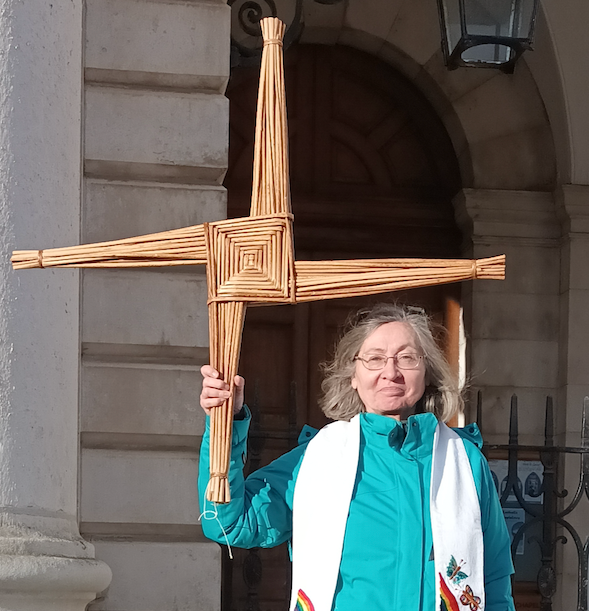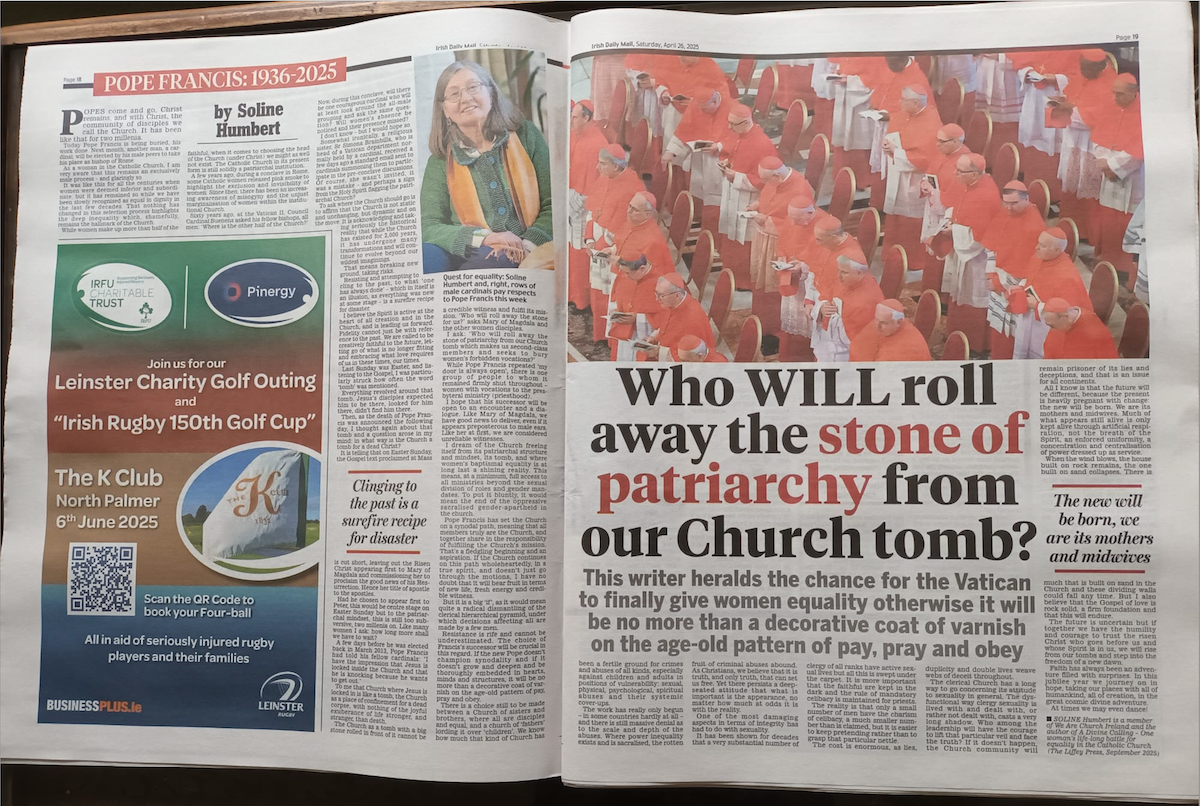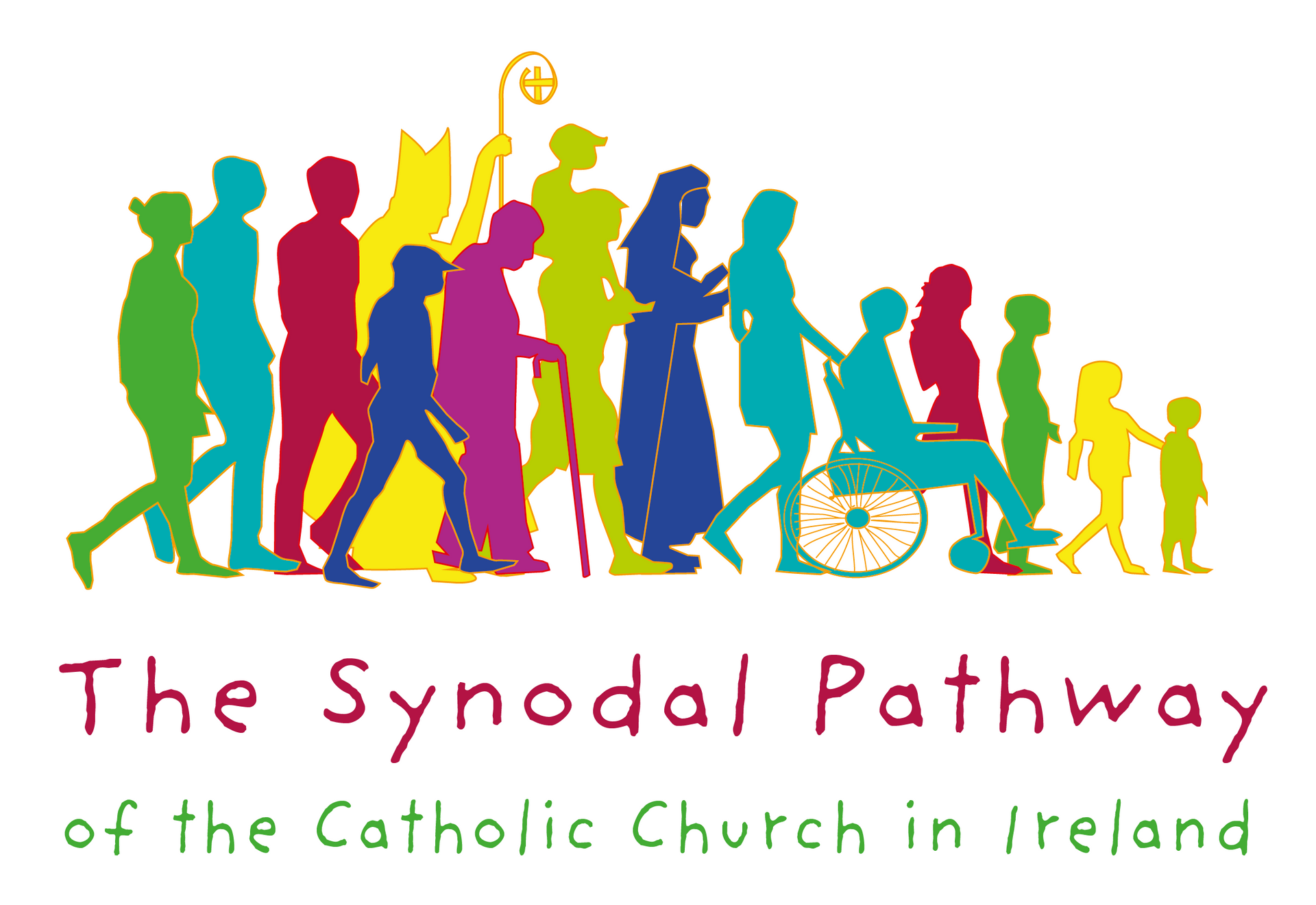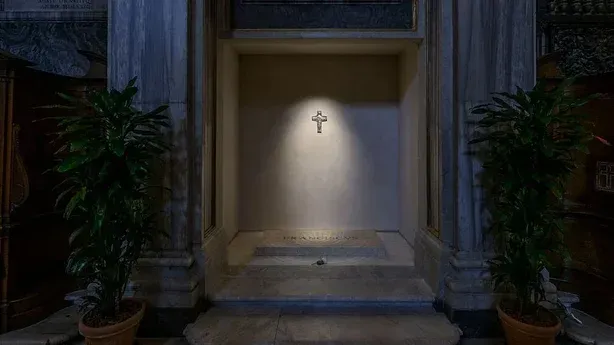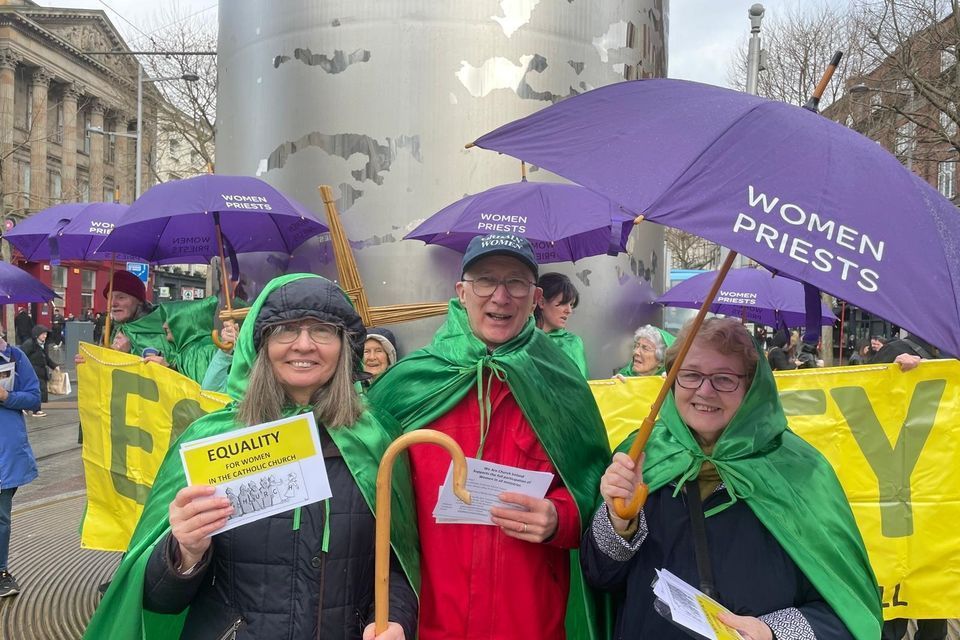Text of Homily by Dr Mary McAleese Pride Evensong
Christchurch Cathedral June 30th 2024
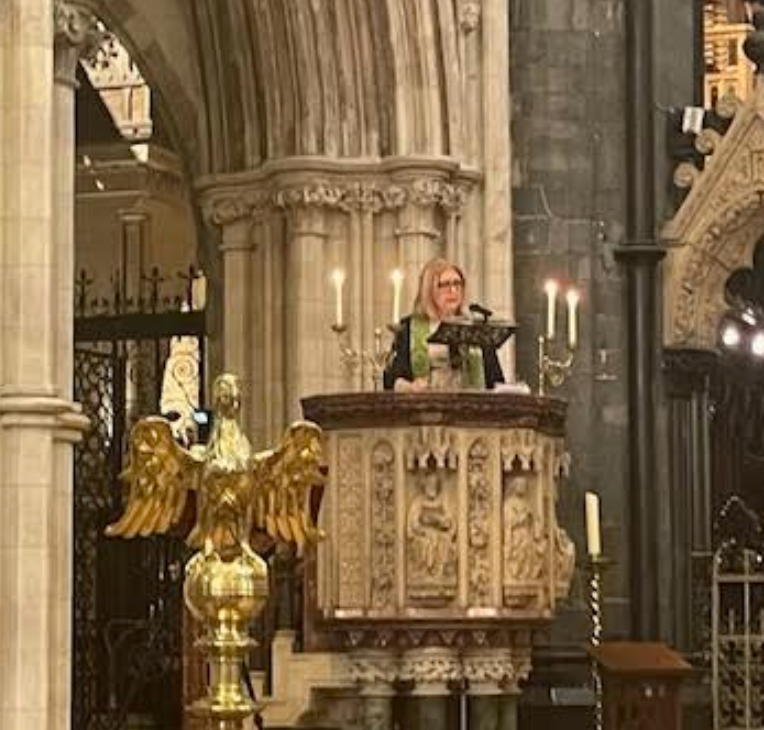
This Cathedral has been the gathering place of Christian worshippers for almost one thousand years. One hundred decades of listening to those powerful, simple words we just heard in the reading from Romans: “Love your neighbour as yourself.” 10Love does no wrong to a neighbour; therefore, love is the fulfilling of the law.” The reading from Jeremiah warns what happens when God’s people disobey his law. The sad reality is that we need few new lessons to teach us what happens when neighbour fails to love neighbour. Down the sweep of those past thousand years we have seen time and again what happens when hatred rules human hearts.
We have seen it on an international scale when wars consumed Europe. We see it still on our continent, in the Middle East and Africa. We have seen it on a national scale when The War of Independence, civil war and The Troubles consumed this beautiful island. We are a fortunate generation to be building a peace among estranged neighbours and to be witnessing the first green shoots of the fulfilling of the law that exhorts us to love one another and promises that human beings flourish in love.
We need no more lessons in the damage done by an absence of love for in this gathering are people who can tell of the damage caused by the absence of that love their homes, workplaces, street corners, sports clubs, communities, churches, the internet where hate filled invective, judgmentalism, cancelling and stereotyping has made life intolerable, driven people to despair, driven too many to see no point in continuing to be alive.
We have seen off in our own time and country oppressive and ignorant laws that made gay men and women hide in the shadows of life afraid to live openly in the fullness of life and love as God intended them. And sad to say we see still too many parts of the world where exclusion, demonisation, harassment, persecution and prosecution are all too present and all too often justified by religious teachings including from the Old and New Testaments we have just listened to.
We are a fortunate generation to have had that miraculous day of grace in 2015 when the voters of Ireland overwhelmingly endorsed same sex marriage and in so doing set their faces and our future towards full equality, liberty and an end of repression. But talking last week to Noel Cunningham one of Ireland’s most accomplished hoteliers and a living authority on the gay experience in Ireland he said forcefully that life for LGBTIQ citizens is still fraught with difficulties and ever present threats of violence on the streets of our cities and towns. He spoke of how demeaned and belittled he felt when the head of his Church and mine, a global religious leader of one in six of the world’s population, twice in recent times used vulgar locker room homophobic language in private settings with bishops and pastors in other words with Church leaders. I know many deeply religious men and women both hetero and homosexual will have shared Noel’s dismay and disappointment and more than that a real fear of the malign influence such language can have. Only in recent days we heard of the violent assault on a hugely courageous young woman who challenged homophobic language she heard shouted by strangers at strangers. It was allegedly the very language used by Pope Francis. We hear too regularly of random unprovoked attacks on young gay men where that language features.
Yet in this overwhelmingly Christian country there can be no doubt that the racists, homophobes and misogynists will all have heard the words of the great commandment to love one another. They have ignored them, or worse still edited them cynically to fit the mean, abusive God they have made in their own awful image and likeness.
And because they do and because of the damage they cause every day still, the world needs to hear that love is the way. The world needs to see love in action and that is why we gather here in this house of God, welcomed, loved, embraced, straight and gay, friends and family, in loving solidarity and with hearts filled with pride at the courageous love this gathering signifies.
This Pride evensong in Christ-Church, a cathedral which has proclaimed his name for one thousand years is a statement of intent about the next one thousand years. To the extent that we can we will insist on the right of all of us to love, to respect, to equality, to be free from wrongs inflicted by ignorance, bigotry and abuse of the gospel and to call it out wherever it appears.
Of all the decades we could have lived in this one, though it could be better, is better than most. That it is thanks to the courage and sacrifice of those who first lifted the Pride banner fifty years ago in very hostile times. Small in number then, they refused to settle for laws, attitudes, biases and language that rendered them second class citizens, made them vulnerable to violence, prejudice and untold and unnecessary heartache. They brought out into the open the damage visited upon them by the prejudice and hate-filled language that had been festering, unchallenged in private, safe spaces and had made toxic the public space whether streets or laws or encounters. Pride helped to change attitudes, change Ireland. Pride has grown so exponentially that this is by far the best decade for LGBTIQA+ men and women in our country but in no way can anyone who proclaims the commandment to love one another settle for the way things are for there is a long road yet to travel to that place where love triumphs and proves its worth. If the best is yet to come it will take more courage, more work, more Pride gatherings, more solidarity until all that miserable hatred is squeezed out by Pride, by lived love of neighbour.
That Ireland has changed and changed profoundly came home to me in a very special way just a few weeks ago. I was coming back from Rome where the Vatican was reeling from the hostile global reaction to Pope Francis’ repeated homophobic locker room language. The shock and pain of my gay friends and family, both lay and clerical was just plain awful. I had texts and emails from many saying how tested they were in their faith. I knew how they felt. Into my mind came the final stanza from the epic poem Donal Og:
You took my east, you took my west/ you took my north, you took my south/ you took the sun from me and the moon/ and I do believe you took my very God from me,
It was in precisely that mood of dejection and frustration that my husband and I disembarked the plane and entered Dublin Airport Terminal 2. The place was decked out in rainbows, wall to wall rainbows, proclaiming this month of Pride in Dublin, saying loud and clear that Dublin, that Ireland, is a place that has Pride’s back, that is proud of Pride and all it stands for.
My husband and I looked at each other and laughed with joy. Here was love in action. Here was proof positive of the power of love and the power of Pride in pushing the LGBTIQA+ community from hiding in the wings of life to centre stage. Everyone exiting that airport, heading East or West, North or South could be left in no doubt that God’s people will do whatever it takes for however long it takes to fulfil the law of love. Pride will go from strength to strength because with Pride there is no confusion, there is the integrity of insisting that the world will only know its best day, its greatest fulfilment when love finally deprives hatred and prejudice of all the oxygen that feeds them, when all the vulgar, cowardly hurtful words and thoughts and deeds are silenced by the courage of those who stand their ground.
We inhabit still the Canon of Expectation of which Seamus Heaney wrote
I yearn for hammer blows on clinkered planks,
the uncompromised report of driven thole-pins,
to know there is one among us who never swerved
from all his instincts told him was right action
who stood his ground in the indicative,
whose boat will lift when the cloudburst happens.
Pride is building that boat and there will be a cloudburst of love and it will lift the boats of equality and it will last a thousand years.
I want to thank the Dean, and Bishop Williams, Rev. Ginnie Kinnerley and members of the Cathedral Community and Church of Ireland Community for this warm and gracious welcome, this embrace which means so much and bears such wonderful witness to what it takes to honour with an open heart, the commandment to love one another. Regrettably it cannot be assured in other churches or places where faithful gather. I am also very grateful to Mark Bower and Rev Ginnie Kinnerley of Changing Attitudes Ireland for the work they do to sustain and develop a tolerant and inclusive Ireland. I am particularly grateful for the privilege of now being patron of that organisation that challenges Christians to break down the barriers that keep neighbours from loving one another as Christ commanded. What a wonderful thing it would be to be the generation that sees those barriers fall and watches as our world drowns in floods of love.
